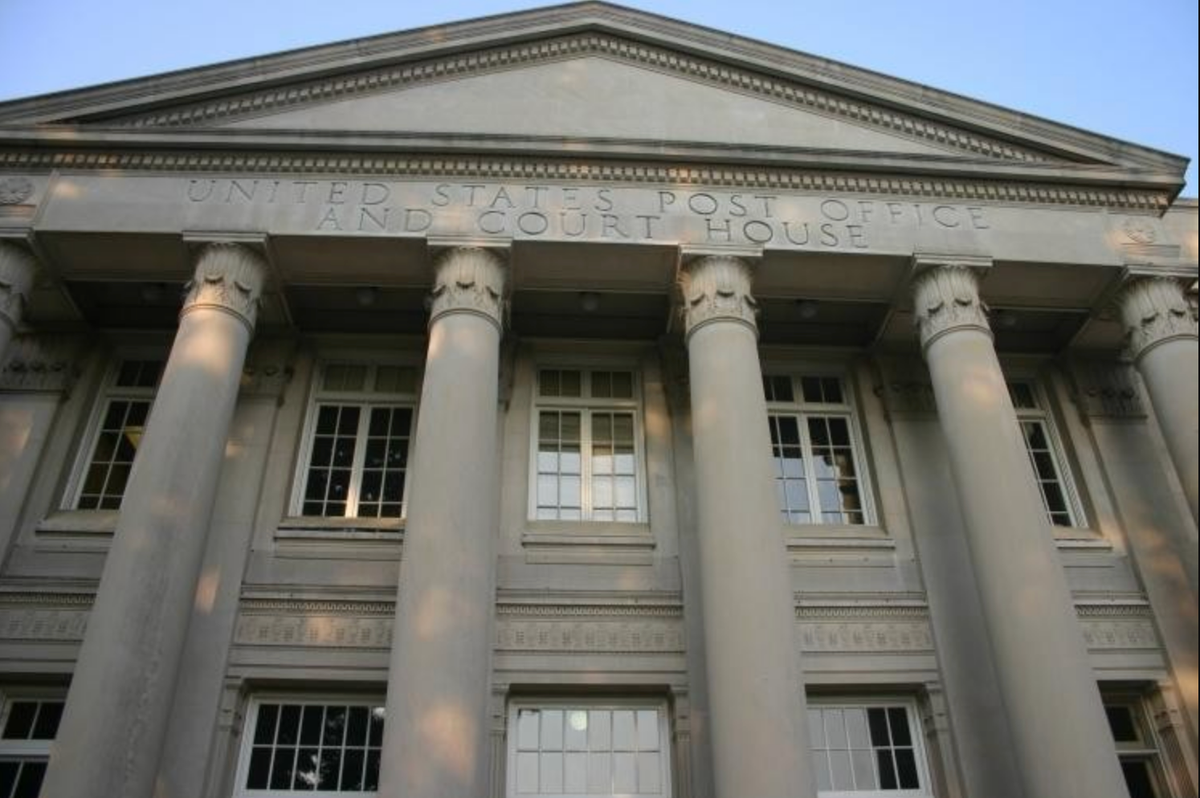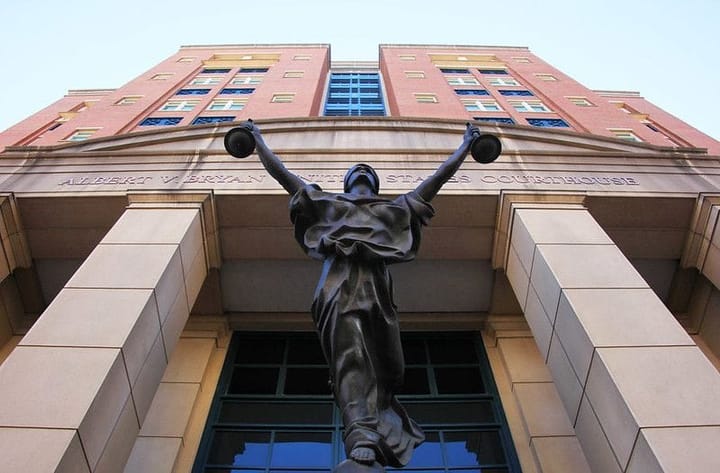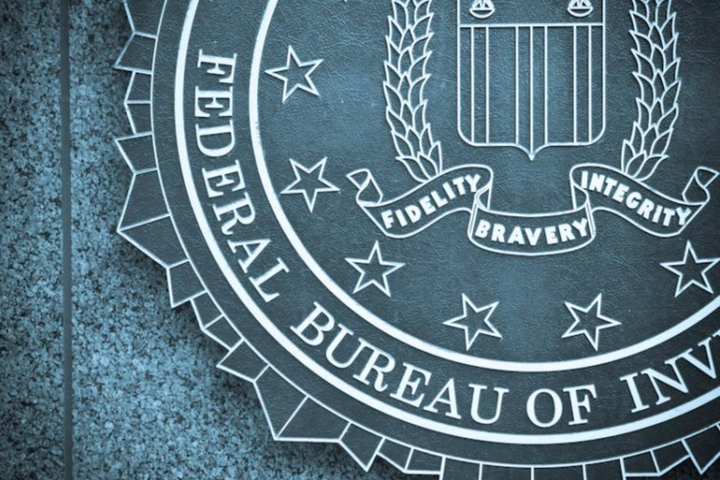In US Court, Asheville Blade Journalists Sue Over Illegal Arrests

The following article was made possible by paid subscribers of The Dissenter. Become a subscriber and support independent journalism on press freedom, whistleblowing, and government secrecy.
A news co-op in North Carolina and two journalists convicted of trespassing offenses filed a federal lawsuit alleging that their constitutional rights were violated by Asheville Police Department officers.
In December 2021, residents in the Asheville community gathered at Aston Park for five evenings to urge the City of Asheville to leave people without any shelter alone in the park after it closed at 10 p.m. They took a stand on Christmas, refusing to disperse. Police responded by sweeping the encampment and arresting six people.
Two of the people arrested were reporters for the Asheville Blade—Matilda Bliss and Veronica Coit.
On April 19, 2023, Bliss and Coit were found guilty of trespassing offenses. They were “sentenced to pay $25 fines and court costs.” Coit received an additional sentence of “one year of unsupervised probation with a 10-day suspended [prison] sentence,” according to the Asheville Citizen-Times.
Both journalists appealed their conviction, but their cases remain pending in the North Carolina Court of Appeals.
According to the complaint [PDF] filed in the United States District Court for the Western District of North Carolina, Asheville officers violated their First Amendment and Fourteenth Amendment rights to record police activities, to gather and report news in public spaces, to engage in speech and expression critical of government officials, and to equal protection of the laws.”
“Because Bliss and Coit had a limited right to remain on the scene to report and record APD officers’ actions, their arrests for trespassing lacked probable cause and violated the Fourth Amendment,” the complaint further asserts.
Thirteen Asheville officers were sued in their individual capacity for their role in allegedly targeting Bliss and Coit, especially since it was clear that they were journalists.
Body camera footage recorded the moment when Sergeant Melissa Lackey said, “Why don’t we do [Bliss and Coit]” first “since they’re videotaping”? Lieutenant Michael McClanahan “agreed with or acquiesced to the suggestion.”
At one point, Lackey told McClanahan that Bliss and Coit could not be arrested because they were reporters. McClanahan disagreed. (Lackey and McClanahan were named as defendants.)
Police chose to make arrests “before completing dispersal of the encampment and protest, with full knowledge that Bliss and Coit were members of the press engaged in filming and reporting on police activities.”
Officer Matt Stapanowich allegedly did not return Bliss’ cell phone, even though the police did not have a warrant for a search or seizure.
The police allegedly held on to the phone for 25 days until a search warrant was obtained, but the application for a search warrant did not mention that Bliss was a journalist. The phone was not returned to Bliss until March 8—74 days after it was seized.
City Manager Debra Campbell and David Zack, who was the Asheville police chief, approved of the arrests. Campbell claimed about a month later that police had the authority to determine who is and is not a journalist. During a podcast interview in March 2023, Zack said “maybe it was the journalists who were the problem.”
If the U.S. court rules in favor of Bliss and Coit, they ask the court to issue a permanent injunction to prevent Asheville police and the City of Asheville from violating the rights of the Asheville Blade and their reporters when they engage in newsgathering on public property. They also seek “compensatory damages.”
Challenging the arrests and subsequent convictions has negatively impacted the Asheville Blade, which is a “small news outlet with limited resources.”
Reporting opportunities have been lost “due to the time” that Bliss and Coit have had to spend “defending themselves from these unconstitutional claims and prosecutions rather than reporting the news.” When required to attend court proceedings, they have been unable to report on key events in the local area.
Both Bliss and Coit say they experienced mental health problems as a result of the police allegedly targeting them.
The American Civil Liberties Union of North Carolina, Freedom of the Press Foundation, Reporters Without Borders, National Press Club, and Committee to Protect Journalists have supported Bliss and Coit and opposed the City of Asheville’s prosecution.
“According to the U.S. Press Freedom Tracker, which maintains a database of legal incidents involving journalists, Plaintiffs Bliss and Coit have been the only journalists in North Carolina arrested and charged with trespassing while newsgathering since at least 2017,” notes the complaint.
Though this is more relevant to the pending appeal, the First Amendment protections at stake have consistently been disregarded by authorities. North Carolina Superior Court Judge Tommy Davis instructed a jury to ignore defense arguments that the journalists’ constitutional rights were violated.
“The defendants contend that the City should have preferred their First Amendment Rights over the First Amendment Rights of the other individuals in the Park by allowing defendants to stay longer in the Park in violation of the ordinance,” Davis declared. “In essence, the defendants are asking the City to enforce the ordinance in a discriminatory unconstitutional content based manner.”
“This court has found no case indicating that a right to gather news takes precedence over an individual actually expressing themselves, or vice versa.”
However, as Seth Stern, advocacy director of the Freedom of the Press Foundation previously pointed out, “Davis [failed] to comprehend that it’s not about journalists having additional rights—it’s about the government having to separately establish a sufficient basis for each infringement of the First Amendment. But the journalists have never been accused of obstructing or harming anyone or anything and arresting them served no ‘interest’ other than censorship.”




Comments ()